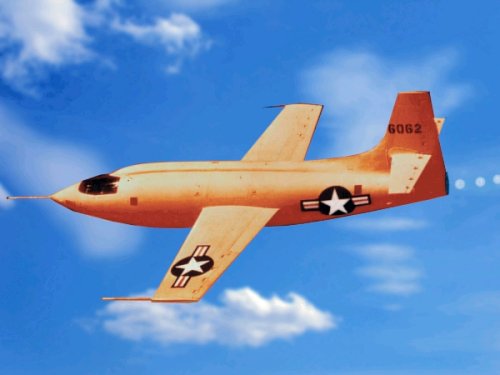I recently read an article that advocated a full retirement of
NASA in favor of commercial space companies. The article can be found
here. It was written by Omar Allam of the Daily Campus. While I support the commercial space effort, I don't advocate canceling NASA altogether. NASA has been in the space flight business for over fifty years. We need NASA for research and guidance. Let's look at NASA's past, present, and future.
 |
| Bell X-1 |
|
Before NASA was what it is today, it was
NACA (National Advisory Committee for Aeronautics). It did research for the aviation industry. It figured out what was safe and what was not. NACA was open for both commercial and military aviation research. Its crown project was XS-1 or
Bell X-1 which broke the sound barrier. NASA took over all NACA's assets in 1958. They still do research for aircraft of all sorts. Check out their
aeronautics web page. They still have valuable research for aviation.
NASA has sent men to the moon and back to Earth. It has maintained a human spaceflight program since the early 1960s. It has operated some of the biggest and most unique spacecraft in human history. It has documented all that experience and research. Now, with a budding new space market for humans NASA has much to offer. How to make rockets, how to launch spacecraft, how to protect spacecraft, how people live in space, how to assemble space assets in orbit, and the list goes on and on. This stuff is invaluable to companies like SpaceX, Orbital Sciences, Boeing, and Sierra Nevada who are making spacecraft for humans and their stuff. Without NASA, these companies wouldn't have the opportunity to be successful in this current era.
 |
| Gemini Rendevous |
|
NASA needs to stay as the prime space research institution for questions that have yet to be answered. How do you really mitigate bone loss in humans? What is the best way to engineer artificial gravity? What ways can cosmic radiation be reduced for acceptable levels for humans? How do you grow food in space? How to recycle vital resources such as air and water? What emergency procedures should there be in case of a rapid decompression? What alternate propulsion can we have? Question like these and many more I haven't thought of and many many more we are yet to ask are all areas where NASA research is beneficial. These questions are one to be asked by commercial companies as they increase there sphere of operations in space. NASA should be there to get them answers.
Understanding the roots of NASA and what it is currently doing, we can grasp its future role. I advocate a cooperative effort between commercial space companies and NASA. Anyway you look at it, it's a win win situation. Our past success in space is due to careful actions on the part of government space programs around the world. NASA is one of the premiere space programs in the world and one of the highest esteemed in aerospace research. It would be foolish to set it aside.


